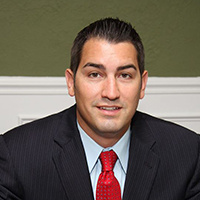Mary D Credit & Debt Lawyer, Pennsylvania
Jason Michael Rapa
✓ VERIFIEDCriminal, Credit & Debt, Personal Injury, Bankruptcy, Car Accident
Jason M. Rapa, Esquire, is a lawyer licensed and admitted to practice law in the State of Pennsylvania and before all three Pennsylvania Federal Court... (more)
Patrick Thomas Barrett
Banking & Finance, Bankruptcy, Credit & Debt, Litigation
Status: In Good Standing Licensed: 38 Years


